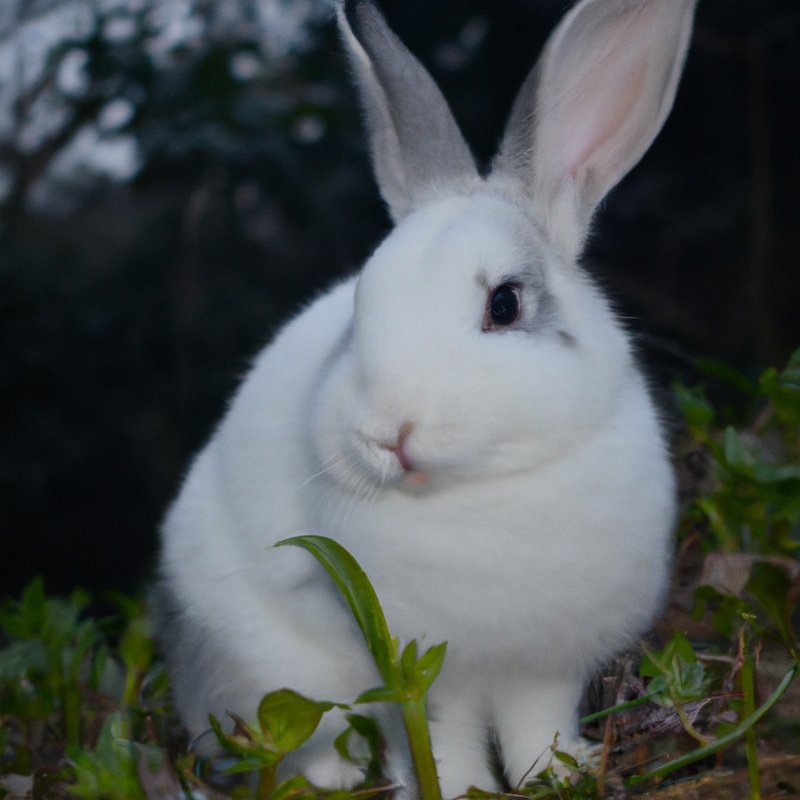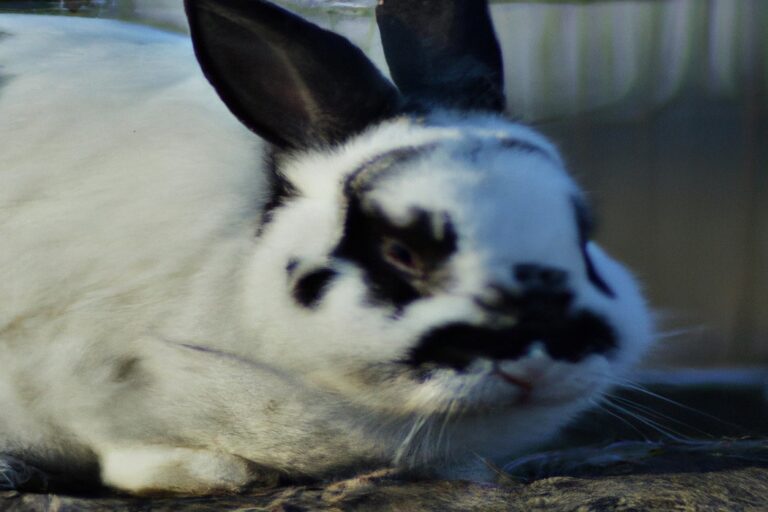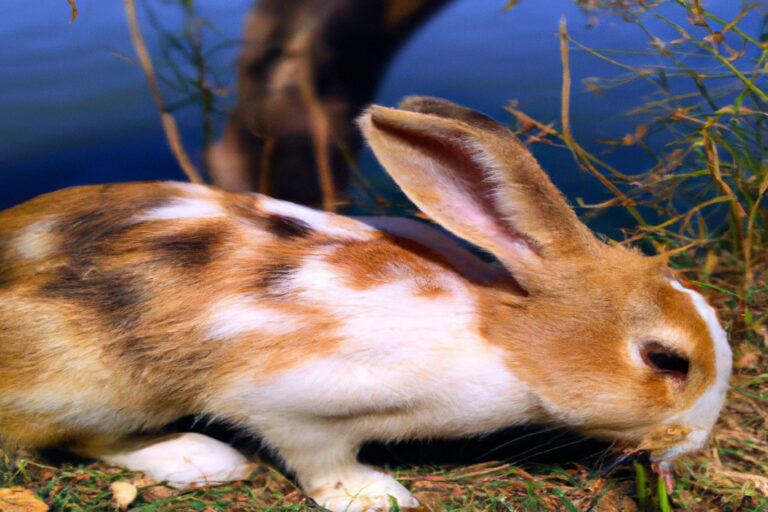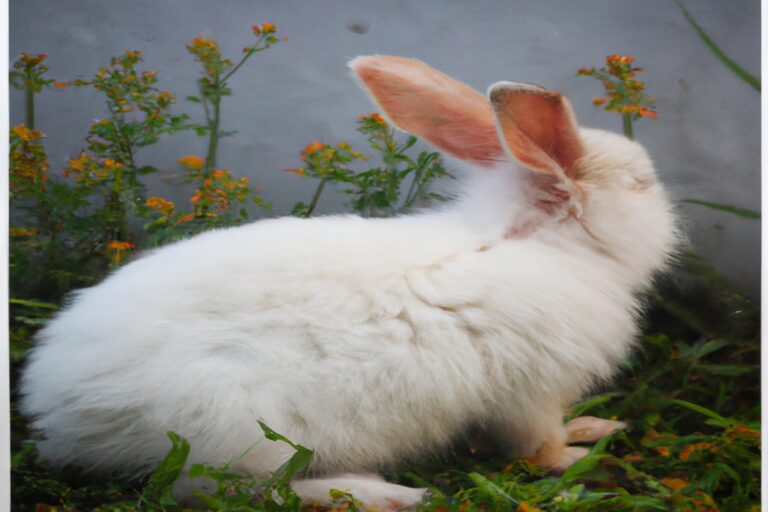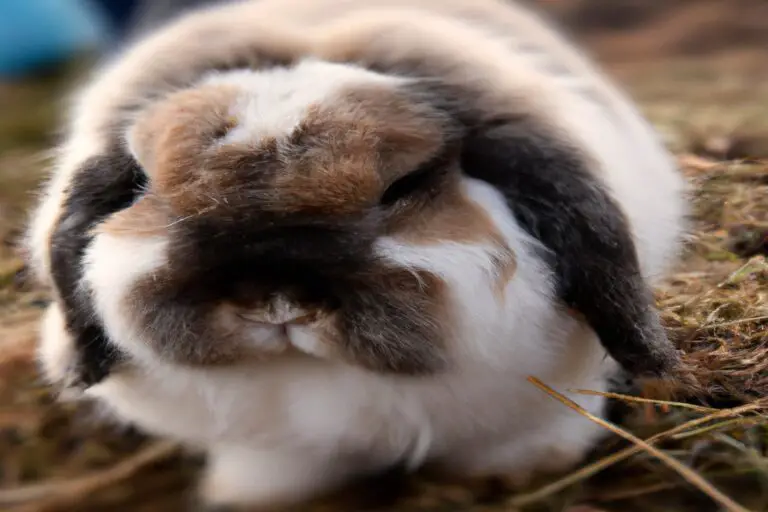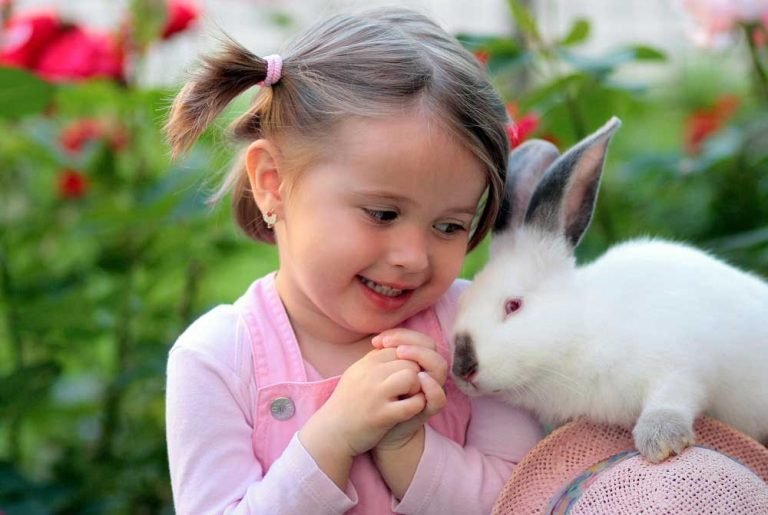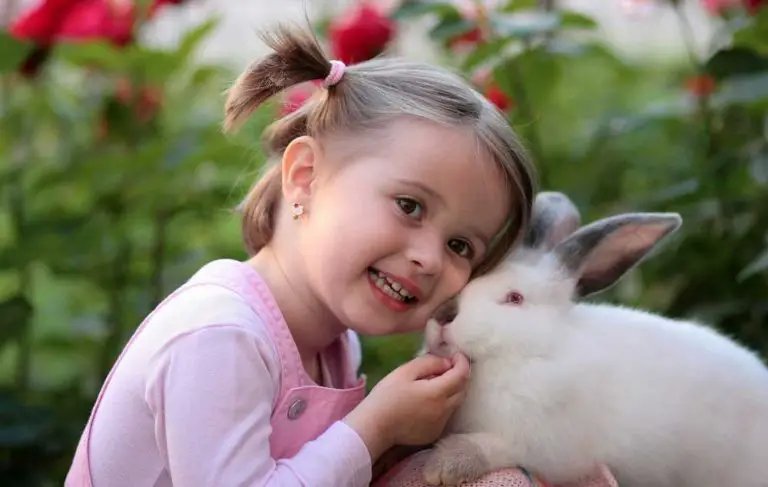The Joy Of Rabbit Companionship: How Rabbits Make Wonderful Pets
Key Takeaways:
- Rabbits make wonderful pets due to their playful and affectionate nature.
- The companionship of a rabbit can bring joy and happiness to your life.
- Rabbits require proper care and attention to ensure their well-being.
- Owning a rabbit can be a rewarding and loving experience for both children and adults.
Are you looking for a furry friend who will bring boundless joy and companionship into your life?
Look no further than rabbits! These adorable creatures have a special way of making our hearts melt and adding an extra dose of happiness to our days.
In this article, we will explore the many benefits of rabbit companionship, from the emotional support they provide to their incredible therapeutic qualities.
We’ll also delve into their unique behaviors and characteristics, discover tips for their care and maintenance, and learn how to build a deep bond with these enchanting creatures.
Ready to hop into the world of rabbit companionship?
Let’s get started!
| Category | Benefits |
|---|---|
| 1. Companionship | Rabbits are social animals that enjoy spending time with their humans. They can form deep bonds with their owners and provide companionship and emotional support. |
| 2. Playfulness | Rabbits are active and playful creatures. They love to hop around, explore their surroundings, and engage in interactive toys and games. |
| 3. Low Maintenance | Compared to other pets, rabbits require relatively less maintenance. They don’t need to be walked like dogs, and their litter box can be easily cleaned. |
| 4. Quietness | Rabbits are generally quiet animals. They don’t bark or meow, which makes them a great choice for people living in apartments or shared spaces. |
| 5. Long Lifespan | Rabbits have a longer lifespan compared to other small pets. With proper care, they can live up to 8-12 years, providing many years of joy and companionship. |
Benefits of Rabbit Companionship
Rabbit companionship offers emotional support, reduces stress, and increases happiness and well-being. They can also be wonderful therapy animals.
Emotional support and companionship
Emotional support and companionship are two key benefits of having a rabbit as a pet.
Rabbits have a gentle nature and can provide comfort during stressful or lonely times.
They love to be near their human companions and can form strong bonds with them.
Rabbits are also great listeners and can offer a non-judgmental presence when you need to talk or vent.
Their soft fur and playful antics can bring a smile to your face and help alleviate feelings of sadness or anxiety.
Having a rabbit as a companion can truly brighten your day and provide emotional support when you need it most.
Rabbits as therapy animals
Rabbits can be excellent therapy animals. Their gentle nature and soft fur make them comforting companions.
When interacting with rabbits, people often feel a sense of calm and relaxation.
The act of petting a rabbit can lower stress levels and release feel-good hormones. Additionally, rabbits are non-judgmental and provide unconditional love.
They can bring joy and comfort to individuals of all ages, including those with disabilities or mental health conditions.
Rabbits as therapy animals have the power to significantly improve the well-being and happiness of those they interact with.
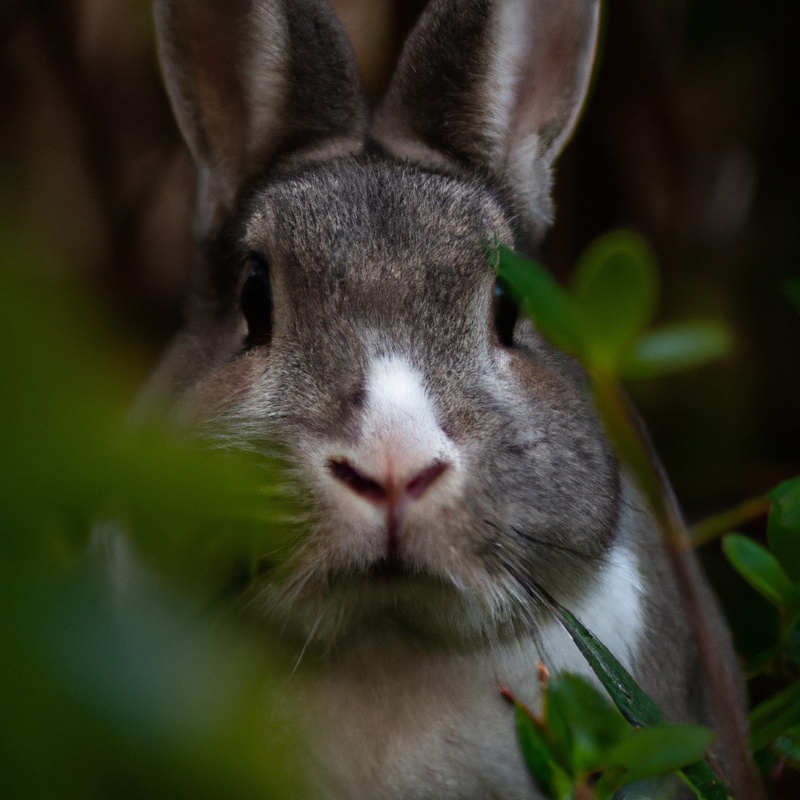
Reduced stress and anxiety
Reduced stress and anxiety: Having a rabbit companion can significantly reduce stress and anxiety in your life. Their gentle and calm nature can have a soothing effect on your mind and help you relax.
The simple act of petting a rabbit releases feel-good hormones, such as oxytocin, which can help alleviate stress.
Moreover, watching their playful antics and interacting with them can bring joy and laughter, further reducing stress levels. Rabbits truly are wonderful companions for a stress-free and happy life.
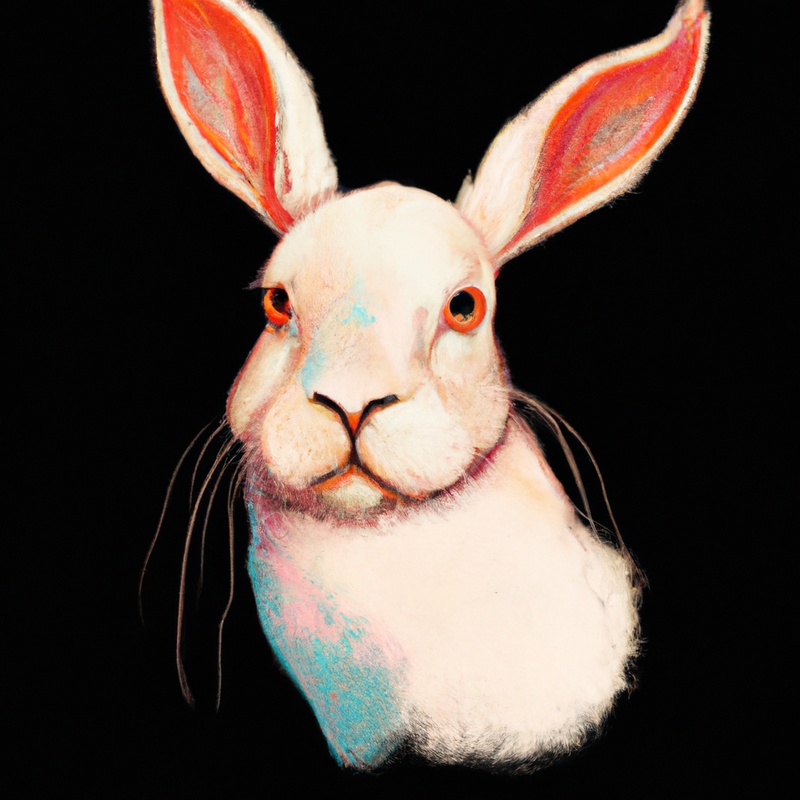
Increased happiness and well-being
Having a rabbit companion can significantly increase your happiness and overall well-being.
The joy of coming home to a furry friend who is always excited to see you can bring a sense of comfort and companionship.
Rabbits have a calming presence and their gentle nature can have a positive impact on your mood.
Spending time with your rabbit, whether it’s petting, playing, or simply observing them, can help reduce stress and improve your overall mental well-being.
Additionally, the responsibility of caring for a rabbit can add structure to your life and give you a sense of purpose.
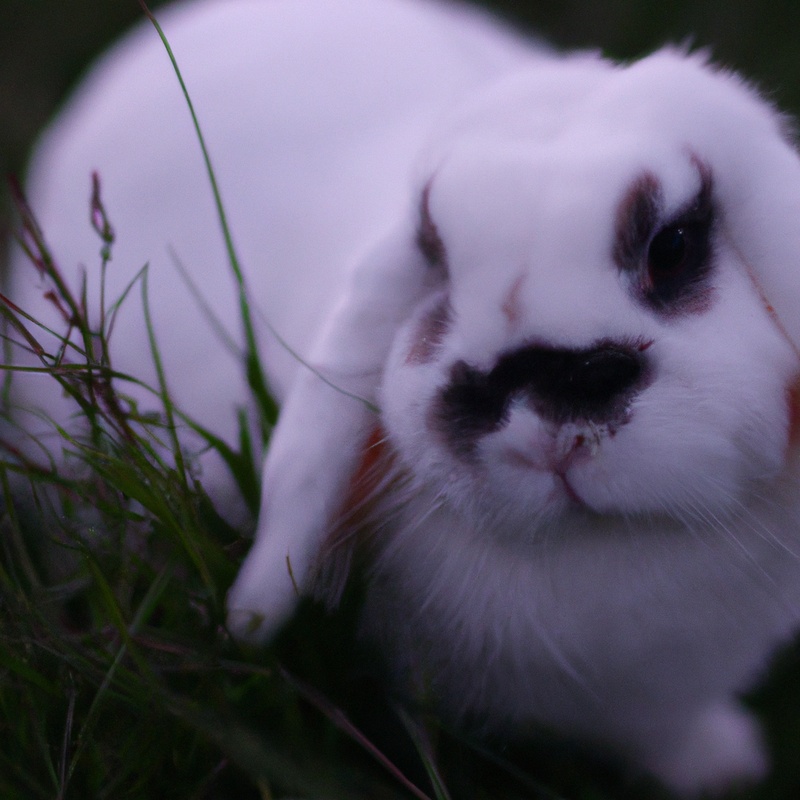
Rabbit Behavior and Characteristics
Rabbits have a social nature and enjoy companionship.
They are playful, low-maintenance pets that bring entertainment and joy to your home.
Social nature of rabbits
Rabbits are social animals and enjoy companionship.
They form strong bonds with their owners and can also get along well with other rabbits.
Here are a few reasons why rabbits have a social nature:
- Bonding with humans: Rabbits can develop deep bonds with their owners. They enjoy human interaction and often seek attention and affection from them.
- Bonding with other rabbits: Rabbits can form close bonds with other rabbits. They establish hierarchies within their group and engage in social grooming, playing, and cuddling.
- Communication: Rabbits communicate with each other through various means, such as body language, vocalization, and scent marking. They can express their emotions and intentions to their companions.
- Loneliness and boredom: Rabbits are prone to loneliness and boredom when kept alone. Having a companion helps in reducing stress and anxiety, providing mental stimulation and a sense of security.
- Health benefits: Social interaction has a positive impact on a rabbit’s overall well-being. It helps in preventing behavioral issues, such as aggression and destructive behavior, and promotes a healthier and happier life for them.
Whether you decide to have a single rabbit or a pair, providing social interaction and companionship is essential for their overall happiness and welfare.
Playfulness and entertainment value
Rabbits are incredibly playful creatures and can provide endless entertainment.
They love to hop, jump, and explore their surroundings, making them a joy to watch.
Rabbits often engage in “binkies,” which are energetic jumps and twists in the air that show pure excitement.
Additionally, they enjoy playing with toys, such as puzzle feeders and balls.
With their playful nature and entertaining antics, rabbits can bring a lot of fun into your life.
Quiet and low-maintenance pets
Quiet and low-maintenance pets are a great choice if you prefer a peaceful and hassle-free household. Rabbits, for example, fit this description perfectly.
They are generally quiet animals and don’t bark or meow like dogs or cats.
Plus, they require minimal grooming compared to other pets. Rabbits are also independent creatures and don’t need constant attention, making them a low-maintenance option.
However, remember that each rabbit is unique, so it’s essential to provide them with proper care, love, and enrichment to ensure their well-being and happiness.
Unique personalities and individuality
Rabbits, like people, have unique personalities and individuality.
Some rabbits are confident and outgoing, while others are more shy and reserved.
Some may be mischievous and curious, while others are calm and gentle.
Just like humans, rabbits have their own preferences, temperaments, and ways of expressing themselves.
Some may enjoy cuddling and being petted, while others prefer to have their own space.
While there are general patterns of behavior in rabbits, it’s important to remember that each rabbit is an individual with their own distinct personality.
Rabbit Care and Maintenance
Take care of your rabbit by focusing on their diet, housing, exercise, and grooming needs.
Proper diet and nutrition
Proper diet and nutrition are paramount for your rabbit’s well-being. Make sure to provide a balanced diet that includes fresh hay, high-quality pellets, and a variety of fresh vegetables.
Hay should be available at all times as it aids in digestion and helps maintain dental health.
Pellets should be given in moderation to prevent obesity. Introduce vegetables gradually and observe any reactions or digestive issues.
Remember to provide fresh water daily and avoid feeding your rabbit sugary or high-fat treats.
A healthy diet will keep your furry friend happy and thriving!
Housing and living arrangements
Housing and living arrangements for rabbits are essential to their well-being.
Here are a few key points to consider:
- Provide a spacious and secure enclosure for your rabbit to roam and play in. A hutch or a roomy pen with enough space to hop around is ideal.
- Make sure the living area is well-ventilated and protected from extreme temperatures. Rabbits are sensitive to heat and cold.
- Line the enclosure with soft bedding materials such as straw or hay. This will provide comfort and absorb any waste.
- Ensure that your rabbit has access to fresh water at all times. A water bottle or bowl can be used, but make sure it is cleaned regularly.
- Offer a balanced diet of hay, fresh vegetables, and rabbit pellets. Avoid feeding your rabbit foods that are toxic to them, such as chocolate or onions.
- Provide toys, tunnels, and hiding spots in the enclosure to keep your rabbit mentally stimulated and entertained.
Taking these housing and living arrangement considerations into account will create a safe and comfortable environment for your rabbit to thrive in.
Exercise and enrichment activities
Exercise and enrichment activities are essential for keeping rabbits healthy and happy.
Rabbits need regular exercise to maintain their physical fitness and stimulate their minds.
To meet their exercise needs, provide them with a large, safe, and secure area to hop and run freely.
Additionally, give them plenty of toys, tunnels, and puzzles for mental stimulation.
Engage in interactive playtime with your rabbit using toys such as balls and tunnels.
Remember to closely supervise your rabbit during playtime and ensure their safety at all times.
Grooming and hygiene
Grooming and hygiene are essential for keeping your rabbit healthy and happy.
Regular brushing helps prevent matting and keeps their fur clean.
You should also check their teeth and nails regularly to ensure they are in good condition.
Bathing should be avoided unless necessary, as rabbits are naturally clean animals and excessive bathing can dry out their skin.
Providing a clean and spacious living environment is also important for their overall hygiene.
Keep their litter area clean and change it regularly to prevent odor and the spread of bacteria.
Health and Wellness of Rabbits
Taking care of your rabbit’s health is essential for their overall well-being and happiness.
Importance of veterinary care
Veterinary care is essential for the health and well-being of your rabbit. Regular check-ups with a veterinarian can help detect and prevent potential health issues early on.
They can also provide vaccinations to protect against diseases.
Your vet can give you expert advice on nutrition, housing, and proper handling techniques. If your rabbit does get sick or injured, a vet can provide the necessary treatment and medication to aid in their recovery.
Remember to find a rabbit-savvy vet who has experience and knowledge in caring for these unique and delicate creatures.
Common health issues in rabbits
Rabbits, like any other pets, can experience various health issues. Some common health issues in rabbits include respiratory problems, dental issues, gastrointestinal stasis, and fur mites.
Respiratory problems can be caused by bacterial or viral infections, leading to sneezing and difficulty breathing.
Dental issues can arise from overgrown teeth, resulting in pain and difficulty eating. Gastrointestinal stasis is a common issue wherein a rabbit’s digestive system slows down, causing a loss of appetite and bloating.
Fur mites can cause itching and hair loss.
Regular veterinarian check-ups and a healthy diet can help prevent and manage these health issues.
Preventive measures and vaccinations
Preventive measures and vaccinations are essential for the health and well-being of rabbits. Regular veterinary check-ups and vaccinations can protect them from diseases like myxomatosis and rabbit hemorrhagic disease.
Additionally, providing a clean and safe living environment, offering a balanced diet, and practicing good hygiene can prevent common health problems.
Regular exercise and mental stimulation are also important aspects of preventive care. Remember to consult with a veterinarian for specific preventive measures and vaccination schedules tailored to your pet rabbit.
Signs of a happy and healthy rabbit
A happy and healthy rabbit exhibits a few key signs.
Firstly, their eating habits are consistent—they have a healthy appetite and enjoy a balanced diet.
Secondly, their fur is smooth, shiny, and free of any matting or bald patches.
Thirdly, they are active and curious, exploring their surroundings and engaging in playful behavior.
Additionally, a content rabbit will display social behaviors, such as grooming themselves and their companions.
Lastly, they have regular bowel movements, indicating a healthy digestive system.
Keep an eye out for these signs to ensure your rabbit’s well-being.
Bonding with Your Rabbit
To bond with your rabbit, focus on building trust and establishing a connection.
Building trust and establishing a connection
Building trust and establishing a connection with your rabbit is key to a strong and loving relationship. Here’s how to do it:
- Spend quality time together – Regularly interact with your rabbit through gentle petting, talking softly, and offering treats.
- Be patient and consistent – Rabbits can be shy and fearful at first. Take your time to earn their trust and always handle them gently and calmly.
- Respect their boundaries – Rabbits are prey animals, so it’s important to let them dictate the pace of the interaction. Avoid forcing them into situations they’re uncomfortable with.
- Provide a safe environment – Ensure your rabbit has a comfortable and secure living space where they can relax and feel at ease.
- Use positive reinforcement – Reward good behavior with treats and praise, which will help them associate you with positive experiences.
- Understand their body language – Pay attention to your rabbit’s cues and learn to interpret their body language to better understand their emotions and needs.
Developing trust and a strong bond takes time, but with patience, consistency, and love, you can build a deep connection with your rabbit.
Training and teaching tricks
Training and teaching tricks to your rabbit can be a fun and rewarding experience.
Start by establishing a bond and trust with your rabbit through gentle handling and positive reinforcement.
Use treats as motivation and begin with simple commands like “sit” or “come.” Be patient and consistent, and gradually increase the difficulty of the tricks as your rabbit becomes more comfortable.
Remember to always reward their efforts and celebrate their progress.
Enjoy the process and have fun with your clever and trainable rabbit!
Understanding rabbit body language
Understanding rabbit body language is essential for building a strong bond with your furry friend. Here are a few key signals to look out for:
- Ears: When your rabbit’s ears are relaxed and facing forward, it means they are content. If their ears are flattened or pointing backward, it may indicate fear or aggression.
- Eyes: Wide open eyes indicate a curious and alert rabbit. Half-closed eyes mean they are relaxed and comfortable.
- Body Posture: A lowered and tense body suggests fear or stress, while a rabbit sitting with their hind legs stretched out shows relaxation.
- Tail: A calm rabbit usually keeps their tail down. If it’s raised or thumping, it could be a sign of annoyance or alarm.
- Vocalizations: Rabbits can make different sounds, such as purring when content or grunting when angry or annoyed.
Understanding these non-verbal cues will help you communicate better with your rabbit and ensure a harmonious relationship.
Frequently Asked Questions about Rabbit Companionship
Can rabbits be kept as indoor pets?
Rabbits can be kept as indoor pets.
They are clean animals and can easily be litter trained.
However, they need plenty of space to hop around and exercise, so providing a large enclosure or playpen is essential.
Also, rabbits are social animals and thrive with companionship, so it’s recommended to have more than one rabbit if possible.
Ensure a safe, rabbit-proofed environment to avoid any potential hazards in your home.
Do rabbits get along with other pets?
Yes, rabbits can get along with other pets, but it depends on the individual animals and the proper introduction process. Rabbits generally do well with other rabbits, as they are social animals.
They can also form bonds with friendly cats and dogs, but it’s important to supervise their interactions and give each pet their own space.
Introducing them slowly and allowing them to sniff and observe each other from a safe distance can help establish a positive relationship. Always prioritize the safety and well-being of all pets involved.
How long do rabbits typically live?
Rabbits typically live for about 8 to 12 years.
However, with proper care and a healthy lifestyle, some rabbits have been known to live even longer.
Factors such as genetics, diet, exercise, and overall well-being play a role in determining a rabbit’s lifespan.
Providing a balanced diet, regular veterinary check-ups, a safe and stimulating environment, and lots of love and attention can help ensure that your rabbit lives a happy and fulfilling life.
What are some recommended rabbit breeds for companionship?
Some recommended rabbit breeds for companionship are:
- Holland Lop: Known for their friendly and gentle nature, Holland Lops make excellent companion pets.
- Mini Lop: These small and affectionate rabbits love human interaction and are great for companionship.
- Netherland Dwarf: With their tiny size and playful personality, Netherland Dwarfs are perfect for companionship.
- Lionhead: Lionheads are not only adorable but also make great companions due to their friendly and social nature.
- English Angora: These fluffy bunnies are not only beautiful but also enjoy spending time with their human companions.
Remember, the most important factor in choosing a rabbit for companionship is finding one with a personality that matches your own.
Final Verdict
The joy of rabbit companionship cannot be underestimated. Rabbits offer emotional support, therapeutic benefits, and can significantly reduce stress and anxiety.
Their social nature, playfulness, and low-maintenance characteristics make them entertaining and easy to care for.
Ensuring proper diet, housing, exercise, and grooming will promote the health and well-being of your rabbit. Bonding with your rabbit through trust-building, training, and understanding body language will strengthen your connection.
Lastly, it is recommended to keep rabbits as indoor pets, introduce them properly to other animals, and provide them with the necessary preventive healthcare.
With the right care and attention, rabbits can bring happiness and companionship to your life for many years to come.

